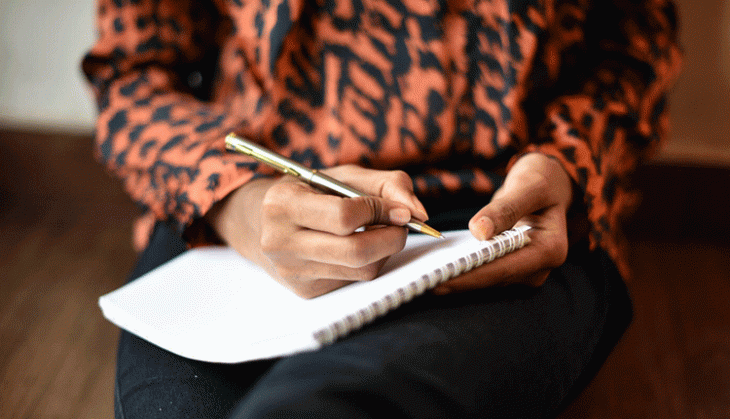Would you write your own eulogy?

Janet Bett Karoney, recently had netizens deep in discussions over the eulogy that drove many to tears.
It was a self penned one that left the deceased’s family and friends with a lasting memory of how she would like them to remember her.
Jane had written it just two months after she was diagnosed with severe aplastic anaemia.
In her eulogy, she talked about the rare blood disorder, which occurs when the body stops producing enough new blood cells, the constant blood transfusions, and how it exhausted her.
She also looked back at her life, her entrepreneurial journey, how she looked forward to going to school and also how she met the love of her life.
She is not the only one who has done this. Lawyer Evans Monari, an advocate who represented President Uhuru Kenyatta at The Hague, also wrote his own, but apparently kept it a secret from family and friends.
The emotional tribute said he was told a number of times he would die, but he was not ready to admit it.
Meaningful life
“It pains me to admit it, but apparently, I have passed away. Everyone told me it would happen one day, but that’s simply not something I wanted to hear, much less experience. For once, I didn’t get things my way this time around,” Monari wrote.
Presently, it has become more common for people to write their own eulogy, even though in many African cultures, talking, planning or even thinking about death is a taboo.
“Eulogies are part of our mourning and grieving,” says Dr Anthony Ireri, lecturer, and personality assessment expert, Kenyatta University, Department of Educational Psychology.
He adds, “They are an integral part of any funeral ceremony. Eulogies help mourners think of positive things about the deceased and to carry on their memory.
Through eulogies, we celebrate them as having lived a meaningful life. One intention is to give mourners hope and make them feel life is worth living.
It is also a way of managing stress that comes with grief and to protect mourners from thinking about death.
Owing to their storytelling nature, eulogies have also been used as historical records and as forms of literary expressions.”
Breaking fears
“Eulogies are important because they are truly a sendoff tribute speech to friends and family that expresses how much the deceased meant to them and includes information pertaining who the deceased was and what he or she did in his or her lifetime.
Traditionally, a eulogy is written by a person who knew the deceased including family members, friends, the deceased person’s religious leader, or perhaps a director at the funeral home.
In the contemporary times, however, people have been writing their own eulogies as a way of sharing a final piece of themselves with the people they care about most,” says Consolata Chesang, a sociologist.
She adds that while in the African culture, death is perceived as a scary, uncontrollable and sad, more people are breaking this fear by talking about it and writing down their wish when they die and how they want to be remembered.
“Since it is meant to capture who a person was, writing your own eulogy allows you to demonstrate to you family and friends how you want them to memorialise you.
It also enables a person to make the best decision and to get up out of their comfort habits, develop new ones and move towards a better future.
Generally, it brings out a sense of clarity and urgency,” she continues.
For decades, existential psychologists have had their clients write their own eulogy as a technique for counselling and for facilitating personal growth in general.
“The procedure involves asking the client to write their own eulogy then engaging in debriefing dialogue regarding the experience.
This exercise helps one to reflect about the eulogy they would like people to read at their funeral and the one they would not like read. The emotions evoked by each of these are recorded,” explains Dr Ireri.
Deeply contemplative
Typically, the idea of writing your own eulogy should evoke emotional discomfort.
As you write it, you act out or watch your own funeral. You get a chance to judge whether your life is aligned to your innermost values.
“As you write the story of your life, you truthfully reflect on how happy, proud, contented, or otherwise you are about your own life.
These reflections help in promoting self-authorship and self-cultivation in a person. Imagine your body sitting lifeless in a coffin while your friends and family sit around it.
Not matter your religious or philosophical beliefs; it is something hard to contemplate. What will people say?
What will they remember? What do you want your life to say about the person you were?” he notes.
While writing your own eulogy requires you to think about your passing, it also allows you a chance to share a final piece of yourself with the people you care about most.
While motivations to write your own eulogy might differ, every person has a unique narrative about who they are.
However, as you write that story you want your friends and family to read at your funeral, Ireri states that it may help to ask a few questions.
“What do you want to be remembered for? What do you want your loved ones to say about you?
How will the people feel about you as they hear your story? How will you have died? What lessons will your story impart to those you cared about and the community of mourners?
How would your eulogy translate into action? Anything that you can while still alive to make your narrative a true reflection of who you really are?” he says in conclusion.












